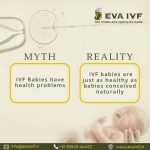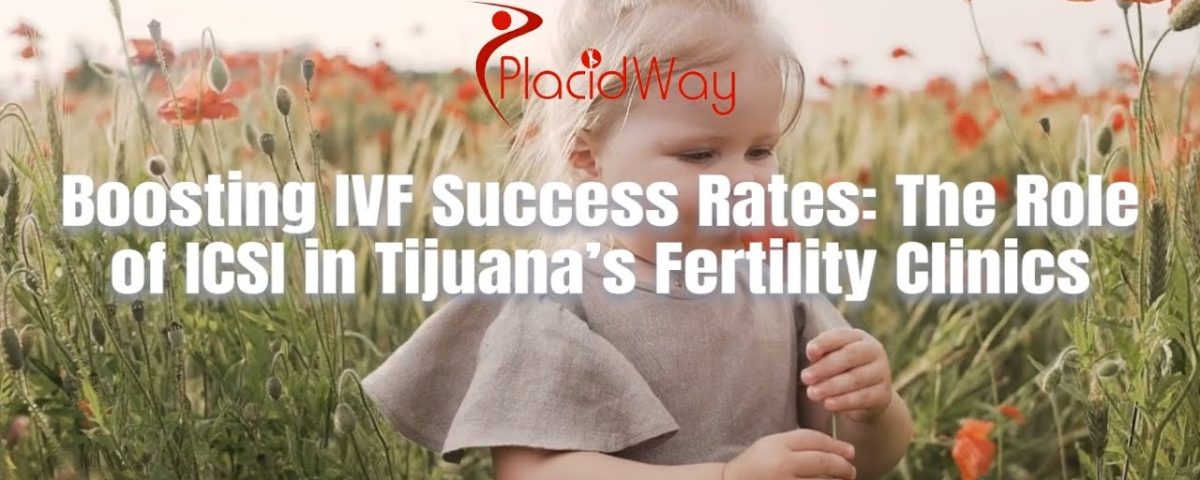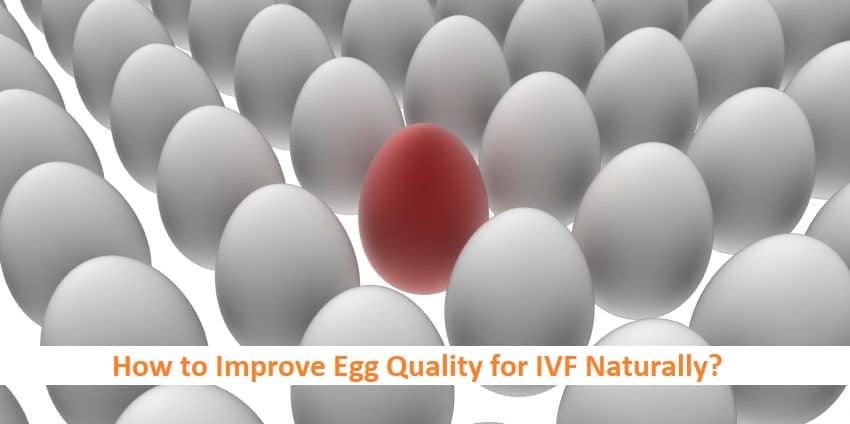
How Many Babies Are Born Through IVF Each Year?
April 14, 2025
Did Walz Use IVF? Unpacking the Facts, Myths, and What It Means for You
April 14, 2025How to Improve Egg Quality for IVF: Your Ultimate Guide to Boosting Fertility Success

How to Improve Egg Quality for IVF: Your Ultimate Guide to Boosting Fertility Success
Starting an IVF journey is a big step, filled with hope, excitement, and maybe a little worry. If you’re here, you’re probably wondering how to give yourself the best shot at success. One of the most important pieces of the puzzle? Egg quality. Healthy, high-quality eggs can make all the difference when it comes to creating strong embryos and, ultimately, welcoming a baby into your life. The good news is that you have more power than you might think to improve your egg quality naturally—and I’m here to walk you through it.
In this guide, we’ll dive deep into what egg quality really means, why it matters for IVF, and how you can take charge with practical, science-backed steps. From what you eat to how you sleep, we’ll cover it all—plus a few surprising tips you won’t find everywhere else. Whether you’re just starting to explore IVF or you’re prepping for your next cycle, this article is packed with ideas to help you feel confident and in control. Let’s get started!
What Is Egg Quality, and Why Does It Matter for IVF?
Egg quality isn’t just a buzzword—it’s the foundation of a successful IVF outcome. Simply put, egg quality refers to how healthy and genetically sound an egg is. A high-quality egg has the right number of chromosomes (23, to be exact) and enough energy to grow into a thriving embryo after fertilization. Poor-quality eggs, on the other hand, might have chromosomal errors or lack the oomph to develop properly, which can lead to failed cycles or early pregnancy loss.
For IVF, egg quality is a big deal because it directly affects your chances of creating a healthy embryo. During the process, doctors retrieve your eggs, fertilize them in a lab, and transfer the best embryo back to your uterus. If the eggs aren’t up to par, even the fanciest technology can’t guarantee success. Age plays a role (more on that later), but it’s not the whole story. Lifestyle, nutrition, and even your environment can shape how your eggs perform.
So, how do you know if your egg quality needs a boost? You might not—there’s no simple at-home test for it. But if you’re over 35, have had trouble conceiving, or your doctor has mentioned “diminished ovarian reserve,” it’s worth paying attention. The goal isn’t just to produce more eggs (quantity) but to ensure the ones you have are top-notch (quality). Ready to make that happen? Let’s dive into the how-to.
The Science Behind Egg Quality: What’s Happening Inside Your Ovaries
Your ovaries are like a vault, holding all the eggs you’ll ever have—about 1-2 million at birth. By the time you hit puberty, that number drops to around 300,000, and it keeps shrinking as you age. Each month, a handful of eggs start maturing, but only one (usually) makes it to ovulation. The rest? They fade away. For IVF, doctors use medications to coax more eggs to mature at once, but quality still trumps quantity.
Here’s the kicker: egg quality declines with age because of something called mitochondrial function. Mitochondria are the tiny power plants in your cells, and they give eggs the energy to divide and grow after fertilization. As you get older, these power plants start to sputter, leading to eggs that are less robust. Studies show that by age 35, about 1 in 4 eggs has chromosomal issues, jumping to 1 in 2 by age 40. That’s why IVF success rates drop as we age—but it’s not a done deal.
What’s exciting is that research from 2024 suggests you can influence this process. While you can’t turn back the clock, you can support your mitochondria and protect your eggs from damage. Think of it like tuning up a car: better fuel and maintenance mean better performance. Let’s explore how to do that.
Fuel Your Eggs with the Right Nutrition
What you eat matters—a lot. Your eggs are growing and maturing over a 90-day cycle, so the next three months are your golden window to make a difference. A nutrient-packed diet can shield your eggs from stress, boost their energy, and improve your IVF odds. Here’s how to build your plate:
Load Up on Antioxidants
Free radicals (unstable molecules) can harm your eggs, but antioxidants fight them off like superheroes. A 2023 study from the Journal of Fertility and Sterility found that women with higher antioxidant levels had better embryo quality during IVF.
- ✔️ Eat this: Berries (blueberries, strawberries), dark leafy greens (spinach, kale), and nuts (almonds, walnuts).
- ❌ Skip this: Processed snacks like chips or sugary sodas—they create more free radicals.
Embrace Healthy Fats
Your hormones need fats to work properly, and healthy fats support egg cell membranes. Omega-3s, in particular, are linked to better fertility outcomes, according to a 2024 report from the American Society for Reproductive Medicine.
- ✔️ Try this: Salmon, chia seeds, flaxseeds, or a handful of avocado on toast.
- ❌ Avoid this: Trans fats in fried foods or margarine—they mess with hormone balance.
Power Up with Protein
Eggs need protein to grow strong, and so do you. Lean proteins help stabilize blood sugar, which keeps your reproductive system happy.
- ✔️ Go for: Chicken, lentils, tofu, or Greek yogurt.
- ❌ Limit: Red meat with lots of fat—it can increase inflammation.
Quick Nutrition Quiz: Are You Egg-Ready?
Take a sec to check your habits! Answer yes or no:
- Do you eat colorful fruits and veggies daily?
- Are healthy fats like olive oil or nuts part of your meals?
- Do you avoid sugary drinks most of the time?
If you said “no” to any, no worries—small swaps can get you there. Try adding a smoothie with spinach and berries to your morning!
Lifestyle Tweaks to Boost Egg Health
Food is just the start. How you live day-to-day can either nurture or stress your eggs. Let’s break it down:
Sleep Like You Mean It
Sleep isn’t a luxury—it’s a must. During deep sleep, your body repairs cells, including those in your ovaries. A 2025 study from Sleep Medicine Reviews found that women getting less than 7 hours of sleep had lower IVF success rates.
- Tip: Aim for 7-9 hours. Dim the lights an hour before bed, and skip the late-night scrolling.
- Why it works: Sleep regulates melatonin, a hormone that doubles as an antioxidant for your eggs.
Move Your Body (But Not Too Much)
Exercise boosts blood flow to your ovaries, delivering oxygen and nutrients to your eggs. But overdoing it can backfire by spiking stress hormones like cortisol.
- ✔️ Do this: 30 minutes of walking, yoga, or swimming most days.
- ❌ Don’t do this: Marathon training or intense HIIT every day—save that for after your IVF cycle.
Cut the Toxins
Cigarettes, alcohol, and even some household chemicals can damage your eggs. Research from the Environmental Health Perspectives journal (2024) shows that exposure to BPA (found in plastics) lowers egg quality.
- Action step: Quit smoking (it’s tough, but worth it—ask your doctor for help). Limit alcohol to a glass of wine here and there. Swap plastic food containers for glass.

Supplements: Your Egg Quality Allies
Sometimes food alone isn’t enough, and that’s where supplements come in. These aren’t magic pills, but they can give your eggs an edge. Always check with your doctor first, though!
CoQ10: The Mitochondrial Booster
CoQ10 fuels your mitochondria, and studies—like one from Aging Cell (2023)—show it can improve egg quality in women over 35.
- How to use: 200-600 mg daily, ideally with a meal (it’s fat-soluble).
- Fun fact: It’s naturally found in fish and spinach, but supplements pack a bigger punch.
Melatonin: The Sleep-and-Egg Protector
Beyond helping you snooze, melatonin is a powerful antioxidant. A 2024 IVF trial found that 3 mg nightly improved egg retrieval numbers.
- How to use: 1-3 mg about an hour before bed.
- Bonus: It might ease IVF stress, too.
Vitamin D: The Sunshine Vitamin
Low vitamin D is linked to poorer IVF outcomes, per a 2025 study in Reproductive Biology. About 40% of women are deficient, so it’s worth a check.
- How to use: Get your levels tested—aim for 30-50 ng/mL with supplements if needed.
- Natural source: 15 minutes of sunlight a few times a week.
Stress Less, Thrive More
Stress isn’t just in your head—it hits your eggs, too. Chronic stress pumps out cortisol, which can throw off your hormones and harm egg development. A 2024 study from Fertility Research and Practice found that women with lower stress scores had higher fertilization rates in IVF.
Simple Stress Busters
- Breathe deep: Try 5 minutes of slow, deep breathing—inhale for 4, exhale for 6.
- Get outside: A 20-minute walk in nature can drop cortisol levels fast.
- Laugh it off: Watch a funny show—laughter boosts feel-good hormones.
Mini Poll: What’s Your Stress Style?
How do you unwind? Pick one and share with a friend:
- A) Yoga or meditation
- B) A good book or movie
- C) Chatting with loved ones
- D) Other (what’s your go-to?)
No matter your pick, making time for it can help your eggs—and your sanity.
Timing Matters: The 90-Day Egg Prep Plan
Eggs take about 90 days to mature, so what you do now affects your next IVF cycle. Here’s a step-by-step plan to get ready:
Month 1: Clean Up
- Cut out smoking, excess alcohol, and junk food.
- Start a daily walk and aim for 7+ hours of sleep.
- Add antioxidant-rich foods like berries and nuts.
Month 2: Build Up
- Introduce supplements (CoQ10, melatonin, vitamin D) after a doctor’s OK.
- Swap coffee for green tea (less caffeine, more antioxidants).
- Try a 10-minute stress-relief habit—like stretching or journaling.
Month 3: Fine-Tune
- Double-check your diet—more salmon, fewer fries.
- Practice mock retrieval day: rest, hydrate, and relax.
- Meet with your fertility team to sync your plan.
By cycle day, your eggs will be in their best shape yet.
Beyond the Basics: 3 Under-the-Radar Tips
Most articles cover diet and stress, but here are three fresh angles to supercharge your egg quality:
1. Guard Against Blue Light
Your phone and laptop emit blue light, which can disrupt melatonin production and egg health. A 2025 study from Chronobiology International found that cutting blue light exposure improved sleep and ovarian function.
- Hack: Use blue-light-blocking glasses after 8 p.m., or switch devices to “night mode.”
- Why it’s new: Few fertility guides tie screen time to eggs—this is cutting-edge stuff.
2. Try Acupuncture
This ancient practice boosts blood flow to your ovaries, potentially enhancing egg quality. A 2024 meta-analysis in Complementary Therapies in Medicine showed higher pregnancy rates in IVF patients who used acupuncture.
- How to start: Find a licensed acupuncturist familiar with fertility—1-2 sessions a week for 8 weeks is a solid trial.
- Unique angle: It’s not just relaxation—it’s about circulation, and the data backs it up.
3. Check Your Gut Health
Your gut microbiome affects inflammation and hormone balance, which trickle down to your eggs. A 2025 pilot study from Gut Microbes found that women with diverse gut bacteria had better IVF outcomes.
- Action: Add fermented foods like yogurt, kefir, or kimchi. Consider a probiotic with Lactobacillus strains.
- Why it’s overlooked: Gut health is a hot topic, but its link to eggs is still emerging—get ahead of the curve.

Age and Egg Quality: Facing the Facts
Age is the elephant in the room, so let’s tackle it. Here’s a quick look at how egg quality shifts:
| Age Range | Chance of Chromosomal Issues | IVF Success Rate (Own Eggs) |
|---|---|---|
| Under 35 | ~25% | 40-50% |
| 35-37 | ~35% | 30-40% |
| 38-40 | ~50% | 20-30% |
| 41-42 | ~75% | 10-15% |
| 43+ | ~90% | <5% |
Data from CDC ART Reports, 2024
If you’re over 35, don’t panic—lifestyle changes and supplements can still help. And if IVF with your own eggs isn’t working, options like donor eggs (with success rates near 50% regardless of age) might be worth exploring. Talk to your doctor about what fits your journey.
A Day in the Life: Your Egg-Boosting Routine
Want to see how this all comes together? Here’s a sample day:
- 7:00 AM: Wake up, sip water with lemon, and take CoQ10 and vitamin D.
- 8:00 AM: Breakfast—oatmeal with chia seeds, berries, and a dollop of almond butter.
- 10:00 AM: 15-minute walk outside (sunlight for vitamin D!).
- 12:30 PM: Lunch—grilled salmon, quinoa, and steamed kale.
- 3:00 PM: 5-minute deep breathing break.
- 6:00 PM: Dinner—chicken stir-fry with veggies and brown rice.
- 9:00 PM: Wind down with herbal tea and a book (no screens).
- 10:00 PM: Pop 3 mg melatonin, lights out by 10:30.
Tweak it to fit your life—it’s about consistency, not perfection.
What Doctors Don’t Always Tell You
Fertility clinics focus on meds and procedures, but some lesser-known factors can sway your egg quality:
- Hydration: Dehydration stresses your cells, including eggs. Aim for 8-10 cups of water daily—add cucumber or mint for flavor.
- Heat Exposure: Hot tubs and saunas might feel great, but they can overheat your ovaries. A 2024 study in Reproductive Toxicology linked high heat to lower egg viability.
- Your Partner’s Role: Sperm quality matters, too. Encourage him to eat well and skip tight pants—heat affects sperm like it does eggs.
Real Stories: How Others Boosted Their Eggs
Meet Sarah, 38, who was prepping for her third IVF round. After two failed cycles, she overhauled her diet—more salmon, less takeout—and started CoQ10. Her next retrieval? Double the mature eggs and a healthy embryo that stuck. Then there’s Mia, 34, who swore by acupuncture after reading about it online. She says it calmed her nerves and gave her better-quality embryos. These aren’t guarantees, but they show what’s possible when you take charge.
Your Egg Quality Checklist
Before your next appointment, run through this:
- ✔️ Eating antioxidant-rich foods daily?
- ✔️ Sleeping 7+ hours most nights?
- ✔️ Taking supplements (with doc’s approval)?
- ✔️ Managing stress with a go-to habit?
- ✔️ Limiting toxins like smoke and plastic?
If you’re missing a few, pick one to start today—small wins add up.

